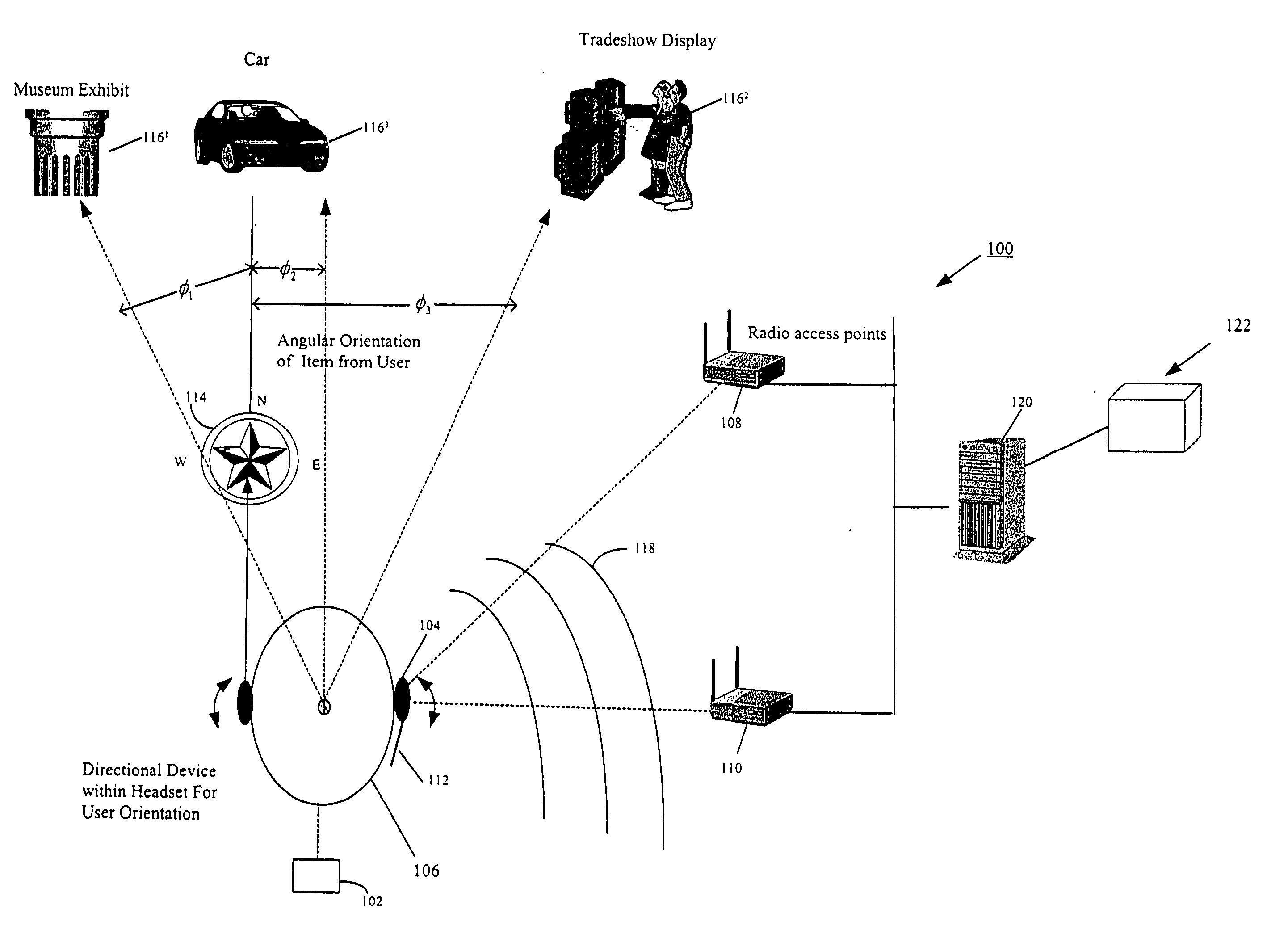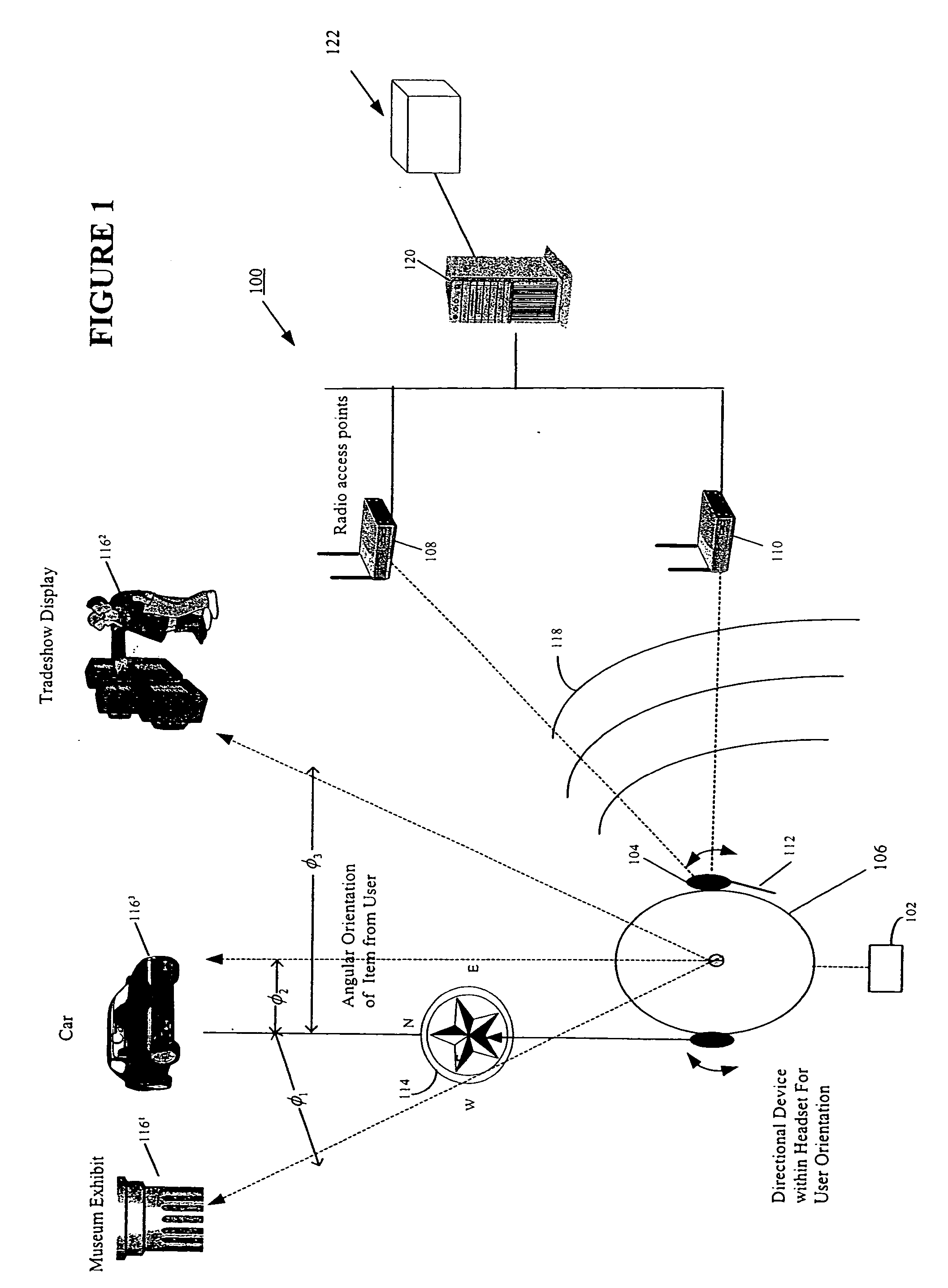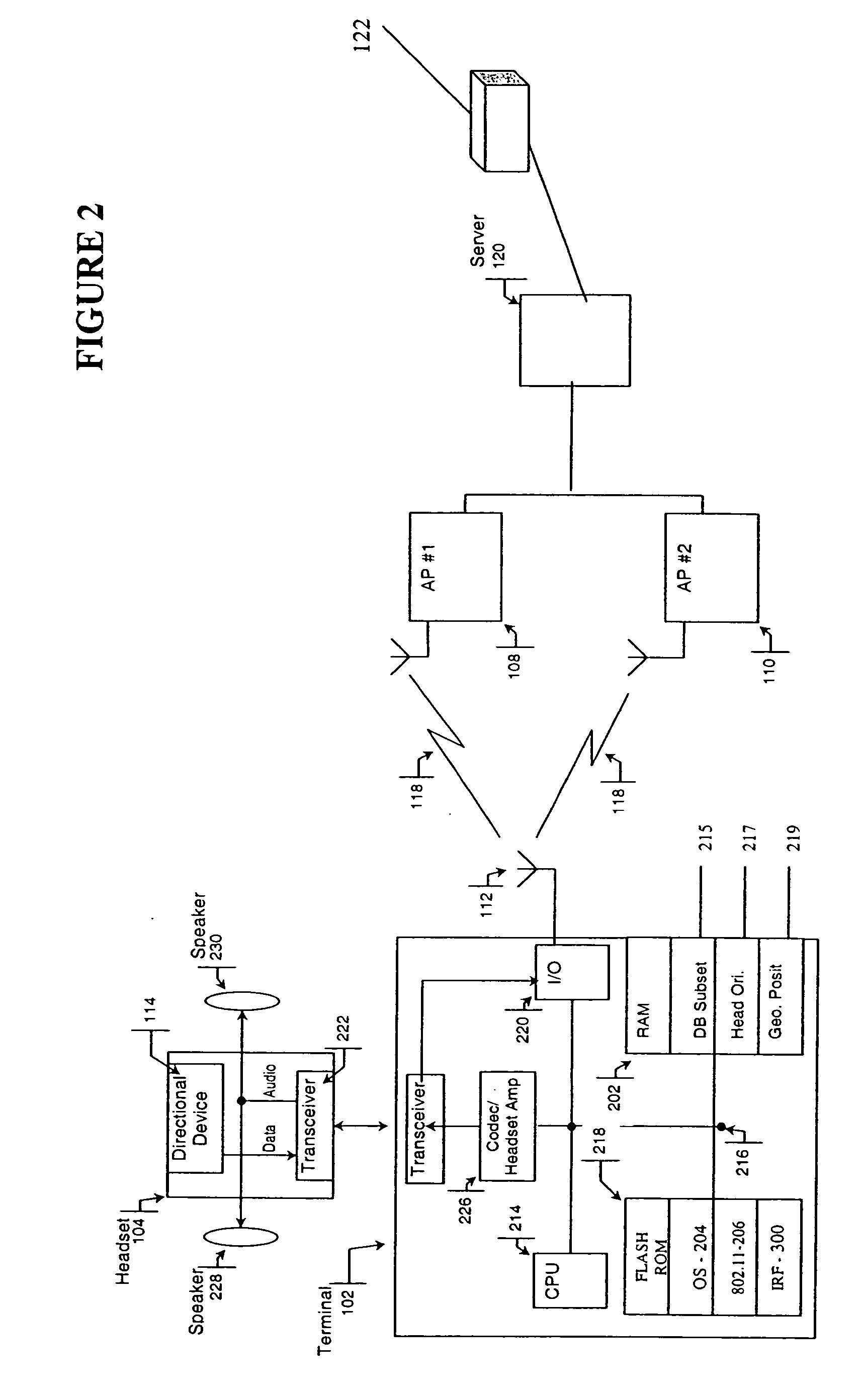Telemetric contextually based spatial audio system integrated into a mobile terminal wireless system
a wireless system and audio system technology, applied in the field of mobile information systems and methods, can solve the problems of not being able to personalize the audio of a particular exhibit to the individual user, placing too much of an imposition on the user, and still lacking the animated and interactive experience desired in viewing items, etc., to achieve the effect of modifying the perceived relative distance between the object and the user
- Summary
- Abstract
- Description
- Claims
- Application Information
AI Technical Summary
Benefits of technology
Problems solved by technology
Method used
Image
Examples
Embodiment Construction
[0030]FIG. 1 discloses a telemetric contextually based spatial audio system 100 integrated into a mobile terminal 102 including a headset 104 attached to a user 106 and linked to radio access points 108 and 110, via antenna 112. The headset includes (see FIG. 2) speakers 228 and 230; a transceiver 222 used to transfer data and audio signals between the headset and terminal; a directional device 114, e.g. electronic compass, GPS, accelerometers, indicating the position and / or heading or angular direction of the user when viewing objects of interest, e.g. a museum exhibit 1161; a tradeshow display 1162 and a car 1163. The system tracks the relative angle and distance from the user to each object. The angular orientation for object 1161 is φ1. The angular orientation for object 1162 is φ2. The angular orientation for object 1163 is φ3. As the user travels towards an object of interest, the distance and angular orientation of the object changes relative to the user. The terminal 102 (Se...
PUM
 Login to View More
Login to View More Abstract
Description
Claims
Application Information
 Login to View More
Login to View More - R&D
- Intellectual Property
- Life Sciences
- Materials
- Tech Scout
- Unparalleled Data Quality
- Higher Quality Content
- 60% Fewer Hallucinations
Browse by: Latest US Patents, China's latest patents, Technical Efficacy Thesaurus, Application Domain, Technology Topic, Popular Technical Reports.
© 2025 PatSnap. All rights reserved.Legal|Privacy policy|Modern Slavery Act Transparency Statement|Sitemap|About US| Contact US: help@patsnap.com



